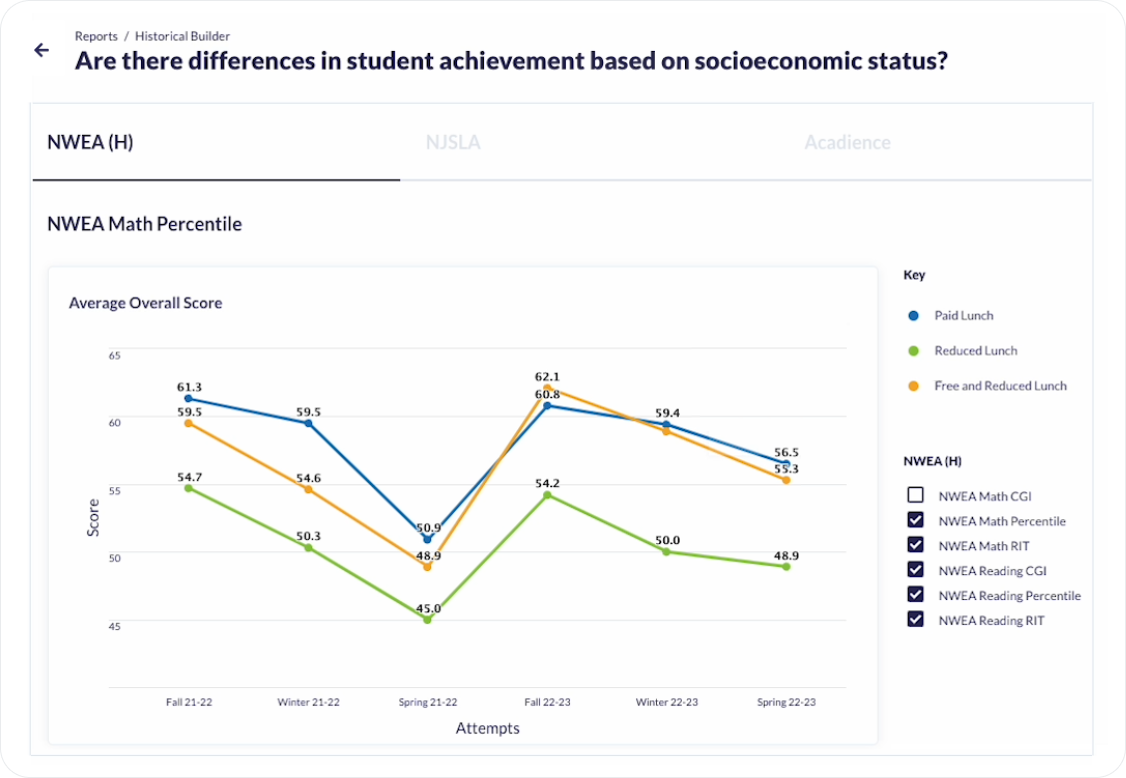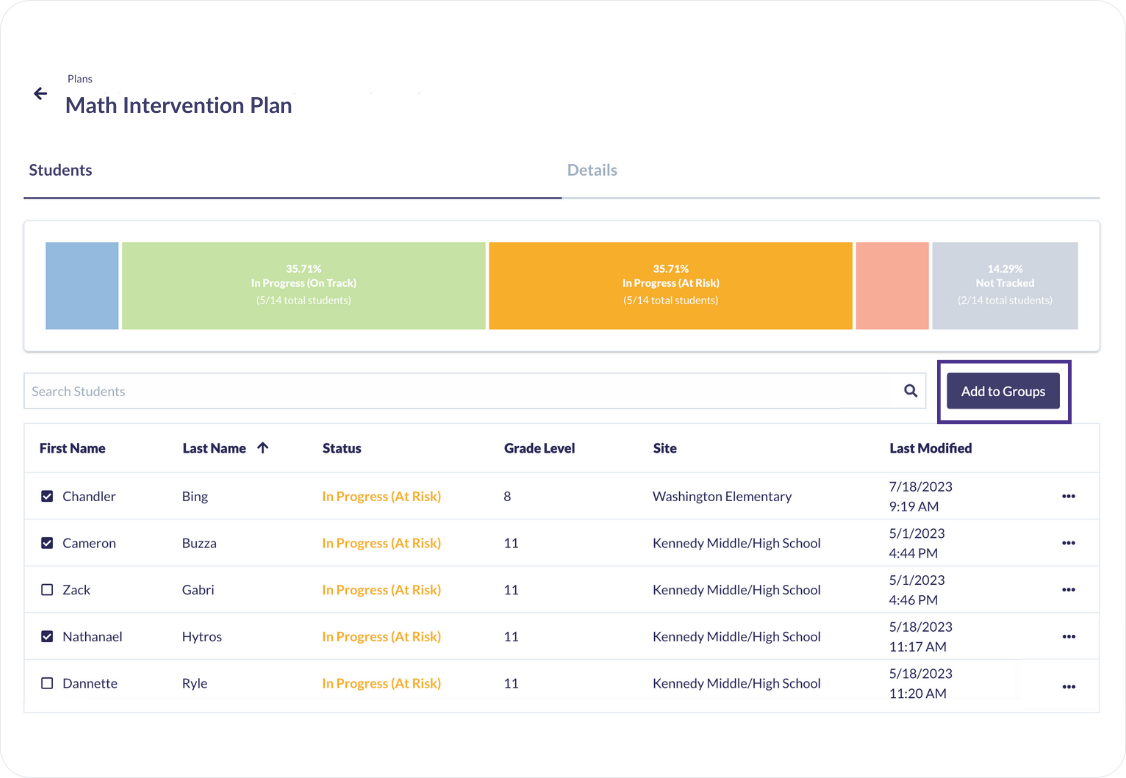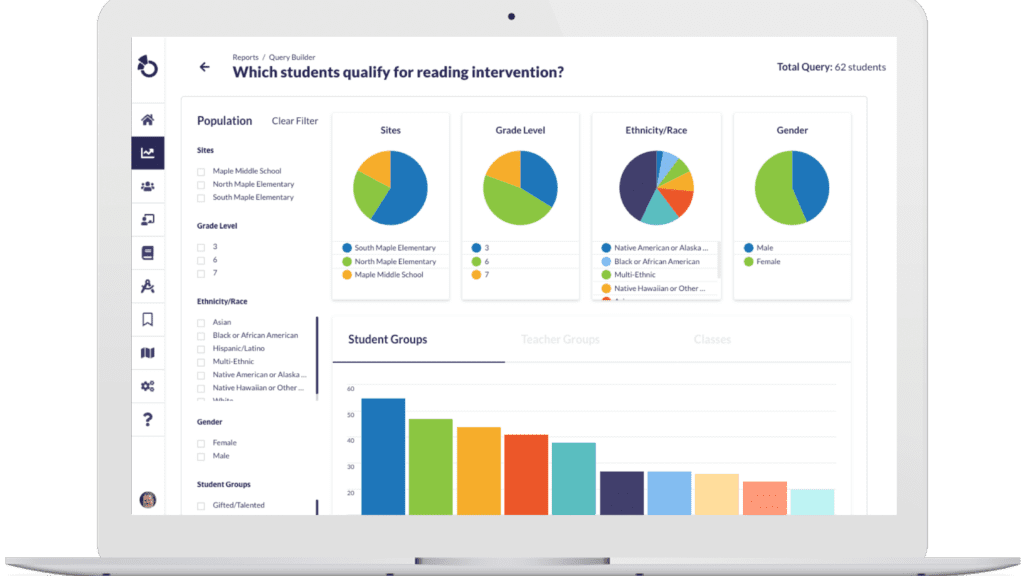Superintendent Roundtable: New Directions in Data-Driven Decision Making
Despite the abundance of student data available, a recent survey found that 98% of school and district leaders felt they needed more actionable data to inform their decision-making processes.
In this District Administration webinar, four superintendents discuss practical approaches to using data to inform strategic leadership decisions, and how they are using data to drive instructional change and improve student outcomes in their districts.
Watch the webinar to learn how to:
- Define and prioritize key data points for informed decision-making and educational equity.
- Address challenges that can occur when implementing a data-driven approach.
- Create a culture of continuous improvement through data analysis and evidence-based practices.
- Evaluate the long-term impact of data-driven decisions on your school community.
Three Key Takeaways from the Roundtable
Utilizing Data to Inform Educational Strategies and Student Support
Educators are increasingly relying on a variety of data points, including benchmark assessments, attendance records, and behavioral insights, to make informed decisions that directly impact student learning and success. This approach allows for the development of targeted interventions, tailored instructional strategies, and a deeper understanding of student needs, leading to improved outcomes and educational equity.
Creating a Data-Driven Culture for Continuous Improvement
Schools are actively working to embed data analysis and evidence-based practices into their culture, aiming for continuous improvement in teaching and student learning. By strategically using data, educators can refine curricula, enhance student engagement, and ensure that teaching methods are effective and responsive to student needs. This commitment to data-driven decision-making fosters an environment where every student has the opportunity to achieve success.
Enhancing Educational Equity and Community Engagement with Data
Data-driven decision-making plays a crucial role in promoting educational equity by identifying and addressing disparities in student achievement. By prioritizing key data points, schools can implement interventions that meet their student population's diverse needs. Furthermore, sharing data findings with parents and the community strengthens relationships and encourages a collaborative approach to supporting student success. The strategic analysis of data, especially when facilitated by student data platforms, is essential for creating inclusive and effective learning environments.
How Otus Helps School Leaders Make Informed Decisions
Otus is a student data and assessment solution designed to streamline school data collection and analysis, enabling administrators and educators to make data-driven decisions. Below are some examples of this in action.
Data Collection and Analysis: With Otus, all of your third-party data is in one place so you can see the total picture of a child. Whether you’re looking at academic assessment data from NWEA MAP or analyzing a social-emotional universal screener, Otus generates reports and visualizations so educators can understand trends, identify areas for improvement, and track progress over time.

Otus Historical Reports provide observable evidence to support data-driven decision-making processes at various levels, including school, district, and state.
Streamlined Progress Monitoring: Otus automates the identification of students who would benefit from academic, behavioral, or social-emotional support so interventions can be put in place. Progress monitoring plans in Otus are collaborative in nature so all stakeholders can work together to ensure students receive timely and targeted support.

School leaders have a birds-eye view of student progress towards goals and interventions in Otus, ensuring the data can be used to allocate resources effectively or identify trends that may require broader systemic changes.
To learn more about Otus, get in touch with our team.
Related Resources
Request a demo!
See exactly how Otus can help your school accelerate student growth and improve student outcomes – all while saving educators time.

